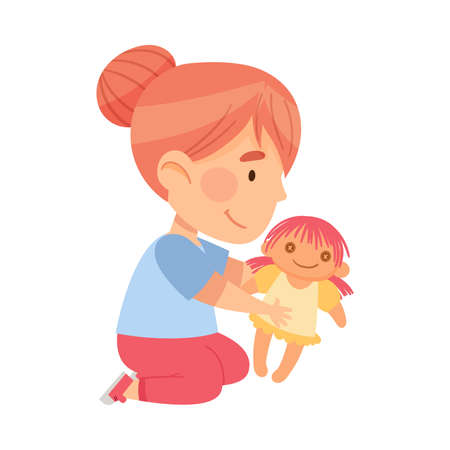Understanding Your Child’s Emotional Needs
Divorce can be a confusing and overwhelming time for children, so it’s crucial for parents to tune in to their emotional needs. One of the most important things you can do is to recognize the range of feelings your child may experience—sadness, anger, confusion, or even guilt. Every child reacts differently, and their emotions may change from day to day.
Encourage Open Communication
Make it clear that your child can talk to you about anything they’re feeling without fear of judgment or getting someone in trouble. Ask open-ended questions like, “How are you feeling about everything?” or “What’s been on your mind lately?” Listen more than you speak, and let them know their feelings are valid.
Provide Consistent Emotional Support
Be patient as your child processes the changes happening in your family. Offer reassurance with both words and actions—remind them that both parents love them and that the divorce is not their fault. Keep routines as consistent as possible to help them feel secure.
Avoid Overloading Them with Details
While honesty is important, avoid sharing adult issues or blaming the other parent. Focus instead on how you’ll continue to care for them together. When you prioritize your child’s emotional needs through open communication and support, you lay the foundation for their resilience during this challenging transition.
2. Communicating Respectfully With Your Co-Parent
Effective communication with your ex-partner is one of the most important aspects of successful co-parenting during and after a divorce. Keeping conversations civil, clear, and focused on your child’s needs can make a world of difference in their emotional well-being. Here are some best practices to help you maintain respectful communication:
Best Practices for Civil Communication
| Dos | Don’ts |
|---|---|
|
|
Email and Text Etiquette
When communicating digitally, keep messages short, direct, and courteous. Stick to the facts and avoid using all caps or exclamation points, which can come across as aggressive. If you’re upset, wait before responding to avoid saying something you might regret.
Troubleshooting Difficult Conversations
If a conversation starts to get heated or unproductive, suggest taking a break and revisiting the topic later. You can also propose using a third-party mediator if disagreements persist. Remember, consistent respect sets a positive example for your child about how to handle conflicts maturely.

3. Establishing Consistent Routines
One of the biggest challenges children face during a divorce is the loss of predictability and security. That’s why it’s crucial for co-parents to establish and maintain consistent routines, even as family dynamics shift.
Tips for Creating Stability Through Routines
Keep Daily Schedules Aligned
Do your best to synchronize mealtimes, bedtimes, and homework hours between both households. Consistency in daily schedules helps kids know what to expect, reducing anxiety and emotional stress.
Handle Transitions Between Homes Smoothly
Don’t surprise your child with last-minute changes when moving between parents’ homes. Instead, create a clear transition routine—maybe a favorite snack on arrival or a set time to call the other parent. This can help children feel secure during what might otherwise be an unsettling moment.
Maintain Consistent Rules and Expectations
Work together with your ex to agree on basic rules regarding chores, screen time, and discipline. While minor differences are inevitable, having some shared boundaries gives children a sense of fairness and stability.
The Bottom Line
Consistency isn’t about making every detail identical between households; it’s about providing enough structure so your child always knows they’re safe and loved—no matter which home they’re in.
4. What Not to Do: Avoiding Harmful Behaviors
Going through a divorce is challenging for everyone involved, but children are especially vulnerable to the actions and words of their parents. To ensure your child’s well-being, it’s crucial to recognize and avoid certain harmful behaviors that can have lasting emotional effects. Here are some common mistakes parents should steer clear of during and after divorce:
Common Mistakes Parents Make
| Mistake | Why It’s Harmful | Healthier Alternative |
|---|---|---|
| Bad-mouthing the other parent | Undermines the child’s relationship with the other parent and increases anxiety or guilt | Speak respectfully about the other parent or remain neutral in front of your child |
| Using children as messengers | Puts kids in the middle of adult issues and forces them to take sides | Communicate directly with your co-parent about logistics and concerns |
| Exposing children to conflict | Leads to emotional distress, insecurity, and behavioral problems in children | Keep disagreements private and create a peaceful environment for your child |
| Pumping children for information about the other parent | Makes kids feel like spies or betrayers, which can damage trust and loyalty | Allow children to share details naturally, without pressure or interrogation |
| Making promises you can’t keep to win favor | Leads to disappointment and confusion when expectations aren’t met | Be honest and realistic about what you can provide or allow |
The Impact of These Behaviors on Children
When parents engage in these destructive patterns, it can lead to increased stress, poor self-esteem, difficulty trusting others, and even long-term mental health challenges for their children. Kids need stability, reassurance, and support from both parents—regardless of marital status. By avoiding these harmful behaviors, you give your child the best chance at adjusting well and maintaining healthy relationships with both sides of the family.
5. Seeking Professional Help When Needed
Divorce is a life-changing event that can bring about a range of emotions, challenges, and uncertainties for both parents and children. While open communication and a strong support system at home are essential, sometimes families need additional guidance to successfully navigate this transition. Recognizing when to seek professional help is a key part of ensuring your family’s well-being during this time.
When Should You Seek Counseling?
If you notice that your child is having persistent behavioral changes, trouble at school, or emotional distress that doesn’t improve over time, it may be beneficial to consult a licensed therapist or counselor. Likewise, if you or your co-parent feel overwhelmed by stress, anger, or sadness, professional counseling can offer strategies for coping and maintaining a healthy environment for your kids.
Benefits of Family Therapy
Family therapy provides a safe space where everyone can express their feelings and learn effective ways to communicate. A trained therapist helps families address misunderstandings, develop conflict resolution skills, and work through the complex emotions associated with divorce. This proactive approach can prevent long-term emotional damage and strengthen family bonds.
Legal Support: Knowing Your Rights
Divorce often involves legal complexities that impact custody arrangements, child support, and visitation rights. Consulting an experienced family law attorney ensures you understand your rights and responsibilities. Legal professionals can also mediate disputes and help create parenting plans that prioritize your children’s best interests.
Finding the Right Professionals
Look for counselors or therapists who specialize in divorce-related issues and have experience working with children and families. For legal matters, choose an attorney familiar with your state’s family laws. Don’t hesitate to ask for recommendations from friends, local community centers, or school counselors—finding the right fit can make all the difference.
Remember, reaching out for help is not a sign of weakness but a commitment to your family’s well-being. Professional guidance can provide clarity, stability, and hope as you move forward together after divorce.


